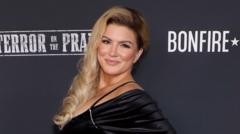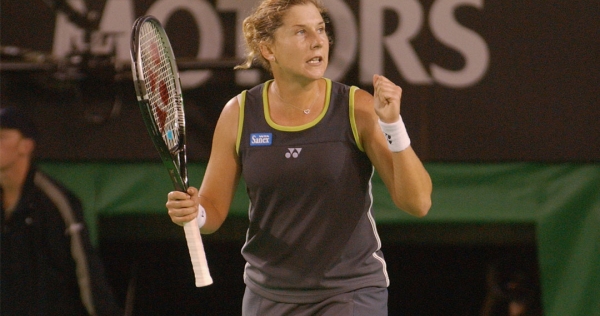Will the World's Oldest Leader Secure an Eighth Term?

Understanding the Political Landscape of Cameroon's Upcoming Presidential Election
The political climate in Cameroon is heating up as the nation approaches its presidential election scheduled for October 12. With the exclusion of prominent opposition leader Maurice Kamto, the electoral landscape has shifted dramatically. In this article, we will explore the implications of Kamto's disqualification, the candidates vying for the presidency, and the broader context of Cameroon's political dynamics. This election is not just about who will lead the country; it's a reflection of the aspirations and frustrations of its people.
The Disqualification of Maurice Kamto
One of the most significant developments in the lead-up to the election is the decision by Cameroon's Constitutional Council to uphold the electoral body's ruling that barred Maurice Kamto from participating. Kamto, a prominent opposition figure and leader of the Movement for the Renaissance of Cameroon (MRC), was sidelined due to an internal conflict within his party. A rival faction endorsed another candidate, which ultimately led to Kamto’s disqualification. His exclusion has ignited outrage among his supporters, who view the decision as a politically motivated move rather than a legal necessity.
President Paul Biya's Continued Dominance
At the center of this political storm is 92-year-old President Paul Biya, who has been in power since 1982. As the world’s oldest serving head of state, Biya’s decision to seek an eighth term raises questions about the future of democracy in Cameroon. His long tenure has been characterized by allegations of electoral fraud and suppression of dissent. Despite these controversies, Biya remains a formidable figure, especially now that his main rival, Kamto, is out of the race.
The Candidates in the Race
With Kamto's exit, the field narrows to 12 candidates, among whom six are considered serious contenders. Let’s delve into the profiles of these candidates and their political backgrounds.
1. Paul Biya
As the incumbent president and leader of the ruling Cameroon People’s Democratic Movement (CPDM), Biya is widely seen as the favorite to win. His campaign focuses on the well-being of women and youth, although critics argue that these promises lack substance in the face of ongoing challenges such as corruption and economic instability.
2. Bello Bouba Maigari
At 78, Maigari is a seasoned politician with a history of serving in various government positions. His recent decision to run against Biya comes after decades of political alliance. While his experience is noteworthy, some analysts question whether he can rally sufficient support given his previous ties to Biya's administration.
3. Issa Tchiroma Bakary
Another former ally of Biya, Tchiroma has also declared his candidacy at 75. His criticisms of Biya's governance and calls for systemic reform may resonate with voters disillusioned by the current administration. However, like Maigari, his past associations could hinder his credibility among opposition supporters.
4. Cabral Libii
Libii, the president of the Cameroon Party for National Reconciliation (PCRN), is one of the younger candidates at 38. His previous attempt in the 2018 election garnered him 6% of the vote, and he has since strengthened his political presence. Analysts are watching Libii closely, as he could emerge as a significant challenger to Biya, especially in the wake of Kamto’s disqualification.
5. Akere Muna
A seasoned lawyer and former candidate, Muna has returned to the race with a focus on anti-corruption and good governance. His family background in politics and his international experience give him a unique perspective that could appeal to a broad range of voters.
6. Joshua Osih
At 56, Osih leads the Social Democratic Front (SDF), once the main opposition party in Cameroon. His experience in the previous election and commitment to social reforms could attract voters looking for change. However, the party has faced internal divisions, which may impact its effectiveness in this election.
The Challenges Facing the Opposition
The absence of a united opposition could prove detrimental to those challenging Biya. Historically, the fragmented nature of the opposition in Cameroon has weakened their electoral chances. Political analysts emphasize the need for collaboration among opposition candidates to present a cohesive front against Biya's CPDM.
Potential for an Opposition Coalition
In light of Kamto's disqualification, discussions about forming an opposition coalition have gained traction among various political figures. Some believe that a united front could enhance the chances of defeating Biya, who has leveraged his experience and resources to maintain power. This coalition could potentially draw on past experiences, such as the Union for Change during the 1992 elections, which saw a significant challenge to Biya’s presidency.
Voter Sentiment and Expectations
The electorate's sentiment is a critical factor in the upcoming election. Many Cameroonians are disillusioned with the current political landscape, frustrated by economic hardships and a lack of transparency in governance. This tension creates an environment ripe for change, but whether the opposition can harness this sentiment effectively remains to be seen.
The Role of Civil Society
Civil society organizations in Cameroon are increasingly vocal about the need for political reform and transparency. Their influence can play a pivotal role in shaping public opinion and mobilizing support for candidates who prioritize change. Engaging citizens in the political process is essential for fostering a healthy democracy.
Conclusion
The upcoming presidential election in Cameroon is not merely a contest for power; it represents the hopes and aspirations of a nation seeking change. The exclusion of Maurice Kamto has reshaped the political landscape, presenting both challenges and opportunities for the remaining candidates. As the election date approaches, it will be crucial to observe how the candidates navigate the complexities of voter sentiment, historical precedents, and the need for unity among the opposition. Will this election be a turning point for Cameroon, or will Biya's long-standing grip on power continue?
FAQs
What are the key issues facing Cameroon in this election?
Key issues include corruption, economic instability, and governance challenges. Voters are seeking candidates who can address these concerns effectively.
How has Kamto's exclusion affected the opposition's chances?
Kamto's exclusion has weakened the opposition's unity and may diminish their chances against Biya, who is now the clear front-runner.
What role do civil society organizations play in this election?
Civil society organizations are crucial in promoting transparency and engaging citizens in the electoral process, which can influence voter behavior and expectations.
The future of Cameroon hangs in the balance as the nation approaches this critical election. With a mix of seasoned politicians and new challengers, will the electorate rise to demand change or continue to support the long-standing status quo? #CameroonElection #PoliticalChange #DemocracyInAction
```Published: 2025-08-08 00:27:09 | Category: world



